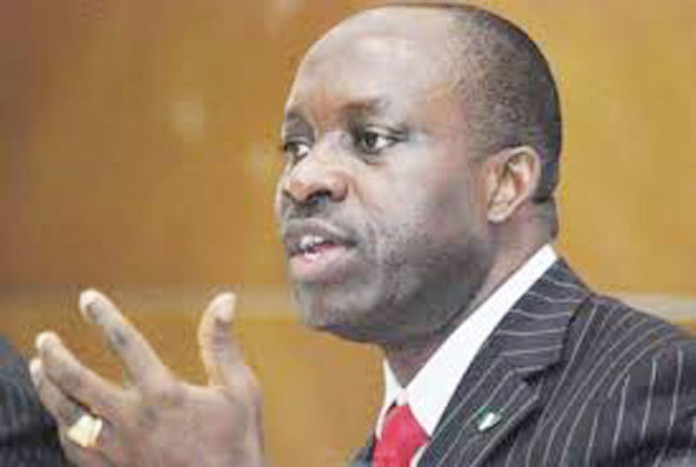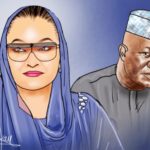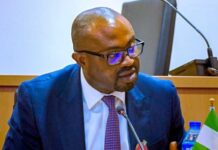By Tochukwu Ezukanma
The Anambra State gubernatorial election is scheduled for November 6, 2021. Quite naturally, different political parties and their political nominees are relentlessly, stridently campaigning for the election. As usual, every gubernatorial candidate wants to convince the people that he has an exceptional insight into the problems of the state, and will, therefore, provide solutions, even, panaceas, to the problems. According to an American parlance, “Talk is cheap”.
Therefore, in determining the next governor of Anambra State, the people of Anambra should focus less on the candidates’ political talk, but more on their antecedence. It is a candidate’s prior performance that prefigures his performance as a governor. The vision, competence, and innovation he demonstrated in his earlier public assignments are powerful indicators of what to expect of him as the governor of Anambra State.
In assessing the gubernatorial candidates based their earlier accomplishments, Charles Chukwuma Soludo, the nominee for the All Progressives Grand Alliance (APGA), stands out. With a doctorate degree from the University of Nigeria, Nsukka, and post-doctoral education in some of the world’s most prestigious institutions, including Oxford and Cambridge Universities, he is a scholar; he was a professor of economics at the University of Nigeria, Nsukka.
But he went beyond the starchiness and pedantry of academia, and also distinguished himself in the practice of economics. He worked for a number of international organizations, including the World Bank, United Nations Economic Commission for Africa and United Nations Development Program. His extensive academic training and work experience prepared him for his famed excellence in public service to Nigeria. He was the Chief Economic Adviser to the President, Olusegun Obasanjo. And, in 2004, he became the Governor of the Central Bank of Nigeria (CBN).
Before his appointment to the CBN, banking in Nigeria was in disarray. Banks routinely collapsed because the banking institution was very weak, and the banks were very poorly regulated. Not surprisingly, there were a lot of abuses and exploitation of the banking process. Bankers exploited depositors and investors, and sometimes, expropriated their money. These led to the collapse of nearly forty banks across Nigeria in a period of less than ten years.
The economic consequences of bank failures on the country were devastating. Primarily, depositors and investors lost their money and investments. Some were traumatized to the point of delirium and insanity, and, some, even, died from the shock of losing their money, and in some cases, entire life savings. Bank employees lost their jobs and were readily thrown into the labor market. Many suppliers and contractors were rendered bankrupt. The dependents and family members of the affected individuals suffer immensely. Nigerians lost confidence in the banking sector, and Nigeria became unattractive to foreign investors. The negative spin-off and spillover effects of the litany of economic woes occasioned by the bank failures were incalculable.
For years, the Central Bank of Nigeria struggled to deal with these lingering problems of financial distress, pervasive weakness, uncertainty, and lawlessness that plagued the banking sector, and the consequent, bank collapses. It was Soludo, as the Governor of the Central Bank, that provided the once and for all solution to these problems with his banking consolidation policy. It resulted in the merging of 89 banks, most of them weak and wobbly, to 25 big and resilient banks. The consolidation provided much-needed stability in the banking industry and boosted public confidence in the Nigeria banking sector. It made it possible for Nigerian commercial banks to have the asset base to fund manufacturing, agriculture, trade, and the services industries. The emergent robust and economically viable banks provided enormous potential for economic growth.
His consolidation program was one of the most successful in the world. The Nigerian banking sector became the fastest growing in Africa and one of the fastest growing in the world. It made Nigeria very attractive to foreign investors. It placed the Nigerian economy at the center of the global flow of financial capital, and the Nigerian financial markets became a major destination of foreign capital. It attracted huge foreign investment into the Nigerian economy. It created economic prosperity in Nigeria that opened up opportunities for ordinary Nigerians.
One seasoned economic commentator summed it up in his own words, “It took Nigeria less than three years to achieve what it took South Africa 20 years to achieve in the area of banking”. And in the words of the London-based journalist, Ayo Akinfe, “Charles Soludo, governor of the Nigerian central bank, is Africa’s best banker. He is the new face of the economic renaissance that is sweeping across the continent”. And the Financial Times of London named Soludo ‘a great reformer’.
For his many achievements, he is the recipient of scores of awards and recognitions, including the Global and African Central Bank Governor of the Year awards in 2005, 2006, and 2007 by different international media institutions, including The Banker Magazine.
Not surprisingly, the governor of Anambra State, Willie Obiano, stated that: of all the candidates for the gubernatorial election, Soludo is the most qualified to succeed me as governor because of his intellectual capacity, local and international contacts, and other necessary qualities required to excel as governor. In Soludo’s own words, “I have done it at the global level and the national level, and now I want to do it for my state.”
For the Anambra gubernatorial election of November 6, 2021, the people of Anambra State should vote for Charles C. Soludo. For we need the vision, brilliance, knowledge, and experience of this great reformer directed at the governance of Anambra State.
Tochukwu Ezukanma writes from Lagos, Nigeria (maciln18@yahoo.com)














